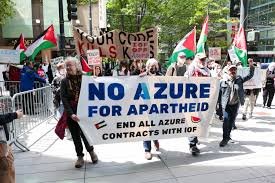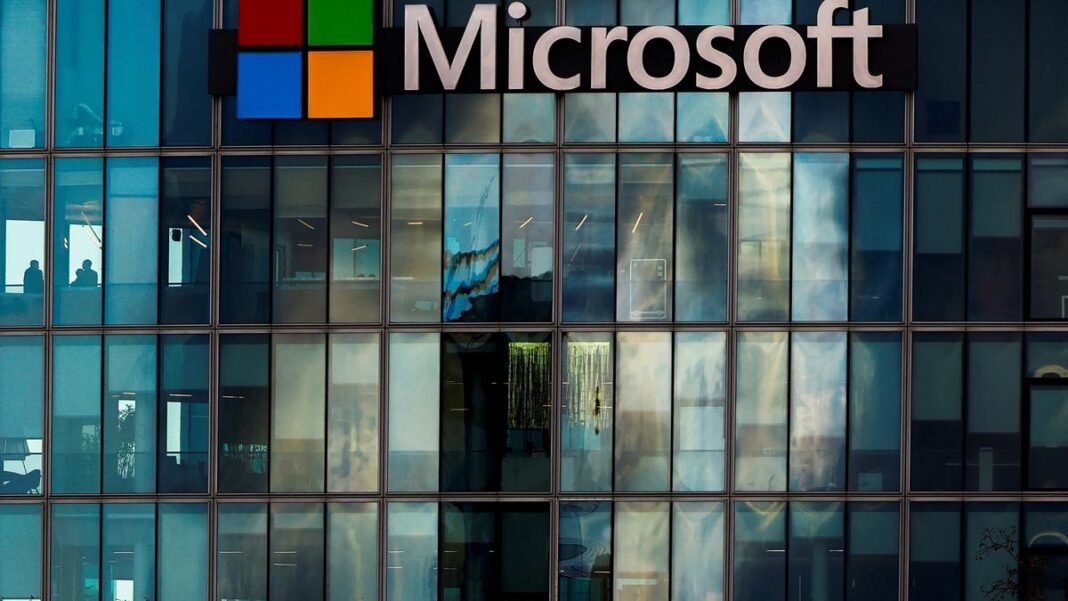
Microsoft, one of the biggest tech companies in the world, is now facing serious criticism after users claimed that emails containing words like “Palestine”, “Gaza”, and “genocide” were being blocked or filtered. This issue has raised concerns about digital censorship, freedom of speech, and how tech platforms control sensitive information related to global conflicts.
Many users took to social media to express shock after they found that emails with those specific words either failed to send, ended up in spam folders, or were silently blocked. While Microsoft has not made an official public statement explaining why this is happening, experts and digital rights activists say this could be a form of automated content filtering linked to the company’s AI and moderation tools.
The issue first gained attention when users in Europe and the U.S. shared screenshots showing that emails mentioning terms like “Palestine,” “Gaza,” or “genocide” were being flagged as violations of policy. Some emails were returned with error messages, while others disappeared completely after being sent through Outlook, Microsoft’s popular email service.
This raised a simple but serious question: Is Microsoft censoring political content related to the Israel-Palestine conflict?
Several human rights groups and free speech advocates were quick to respond. Organizations like Access Now, Electronic Frontier Foundation (EFF), and others demanded an explanation from Microsoft. They argued that blocking these terms amounts to political censorship and silences voices trying to discuss a humanitarian crisis.
It’s important to understand the background of why these words matter. The terms “Palestine” and “Gaza” refer to the Palestinian territories, where ongoing conflict with Israel has led to thousands of deaths and massive destruction. “Genocide” is a term that many use to describe what they believe is systematic violence against Palestinians, especially in Gaza Strip. So, blocking these terms can be seen as suppressing important discussions on global events.
According to reports, the email blocking is not affecting all users the same way. Some people using Microsoft’s corporate email services under Microsoft 365 said their internal emails mentioning those terms were either quarantined or flagged as inappropriate. Others using free Outlook.com services said their emails never reached the receiver, even though no warning was given.
This suggests that Microsoft may be using automated filters, powered by AI algorithms or keyword matching tools, to screen emails for content it deems sensitive or risky. But critics say that such broad filters, especially when used without public explanation, can lead to bias, misuse, and silencing of marginalized voices.
Digital experts point out that many big tech companies use AI moderation to prevent spam, phishing, and hate speech. But if those tools are not transparent or unfairly target political speech, they become a threat to freedom of expression.
Microsoft, so far, has not confirmed whether the email blocking was intentional, a technical glitch, or part of a broader content moderation strategy. In a short reply to journalists, a Microsoft spokesperson said they were “looking into the issue” and would provide more details later.
However, that has not stopped the public anger from growing. On X (formerly Twitter), users began trending hashtags like #MicrosoftCensors, #FreePalestine, and #StopTechCensorship. Many asked why tech companies were allowed to control what people can or cannot say about international human rights issues.
Several users, including professors, journalists, and activists, shared their experiences of trying to send emails that mentioned current events in Gaza or used the word “genocide” to describe the violence. In most cases, these emails failed or were delayed without warning.
One professor from a European university said, “We were discussing humanitarian aid to Gaza, and my email to colleagues never went through. I removed the word ‘Gaza’ and it worked. This is not coincidence. It’s censorship.”
The controversy has now sparked calls for Microsoft to review its moderation policies and make its email filters more transparent. Critics are also calling on governments to regulate how tech giants handle political content, especially when it involves human rights and global justice.
This is not the first time tech platforms have been accused of censorship during the Israel-Palestine conflict. In the past, Meta (Facebook and Instagram) and Google’s YouTube have also faced backlash for removing posts, shadowbanning activists, or limiting the reach of certain hashtags.
The broader concern is that tech companies are becoming gatekeepers of information, especially during wars or humanitarian crises. When platforms start controlling what users can say—either by blocking, limiting, or hiding content—they risk becoming political players, rather than neutral tools of communication.
Some legal experts say that email services, unlike social media, are considered private communication tools, and blocking them may even raise legal issues related to freedom of correspondence, especially in countries with strong civil liberties laws.
Privacy and digital rights organizations have demanded a full audit of Microsoft’s email filtering systems. They want to know:
- Is Microsoft using keyword blacklists?
- Are specific geopolitical terms being targeted?
- Who decides which terms are “dangerous”?
- Are governments influencing Microsoft’s moderation decisions?
They also stress that users have the right to be informed if their emails are being blocked or delayed. Without such transparency, people may never know that their messages are being stopped or monitored.
Microsoft, with over 400 million Outlook users, plays a massive role in how people around the world communicate. Many use Outlook for business, education, activism, journalism, and more. A move like this—whether accidental or planned—could have serious global consequences.
In response to the growing outrage, some users have already started switching to other email platforms that promise better privacy and free speech policies, such as ProtonMail, Tutanota, and Zoho Mail.
Meanwhile, legal scholars are now debating whether such email censorship violates international standards like the UN Declaration of Human Rights, which guarantees freedom of speech and access to information.
To move forward, experts say tech companies must be open, accountable, and balanced in their approach to content filtering. Blocking terms like “Palestine” or “Gaza” in the middle of a major humanitarian crisis may not only harm public discourse but could also lead to more distrust in tech.
As pressure mounts, Microsoft will have to decide how it wants to respond—not just to its users, but to the global community that depends on its services every day.For now, the world is watching, and so is the entire tech industry.































